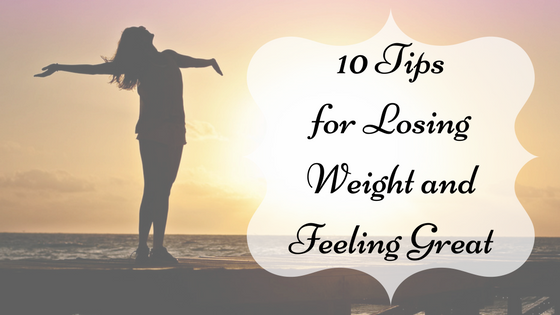When trying to lose weight and maintain it, the hardest part seems to be working through binge eating, emotional eating or food cravings. I know this was true for me, I experienced both the binge eating and food cravings every time I went on a “diet”.
What’s been your experience with food when trying to lose weight?
We have a lifelong relationship with food that can’t be avoided, so it’s important to maintain a healthy one. Often we have an unhealthy relationship with food that causes us stress, frustration and weight gain. At some point though, we need to develop a healthier relationship with food—one that’s founded on fulfilling your nutritional needs, and not your emotional ones.
One thing to remember is that it’s crucial to begin eating for health and nutrition, not for emotion. This is where I’m at today. When I look at my food options today, I naturally see the nutritional value and determine what value will eating this give me.
Healthier eating involves planning balanced meal plans, picking out healthy foods while eating out, and making a point that you’re getting the correct vitamins and minerals in your diet. You can eat nutrient dense food or empty calories; the choice is yours.
So, are you ready to lose some weight and start feeling great?
Here’s 10 great tips that I’ve learned and want to share with you…
Handle tension.
Do you turn to food when you’re tense?
If so, take steps to discover alternate ways to manage your tension and leave the food alone.
Here’s a few strategies to start with: go for a quick walk, take 10 and get some physical exercise, do some deep breathing, meditation, listen to music, write a few words about how you’re feeling, utilize sensory relaxation techniques, and practice self-control.
Consume 3 meals a day plus healthy snacks.
At a minimum try to eat 3 good quality meals a day and at least 1 healthy snack in between. Eating breakfast jump starts your metabolism in the morning. Follow breakfast with a balanced lunch and dinner, with some healthy snacks in between. Where possible, stick with your scheduled mealtimes, as skipping over meals frequently leads to binge eating or emotional eating later in the day, as you haven’t managed your nutrition that day.
This was my hardest step to accomplish. I’ll eat breakfast, but I’m not a snack eater and would not always eat lunch or possibly dinner. Definitely not good for my blood sugar. The joke among my children was “Oh no, mama ate lunch, we can forget about supper.”
Keep away from temptation.
It’s time to take an inventory of your pantry. Throw away (or give away) those unhealthy, sugar loaded, junk filled snacks. This can be the hardest step if your family hasn’t joined you in eating healthier. So, if you can’t get rid of the empty calorie food, put your food in one cabinet and your family’s food in another.
You’re much more likely to binge if you have junk food, sweets, and unhealthy snacks in the house or at your work desk. I call this binge eating “mouth hungry”, this is where we see it and just start eating and then realize we just ate the whole bag of chips or cookies.
So, take away the temptation by clearing your refrigerator and pantry of your preferred go-to unhealthy foods. Start replacing your go to foods with healthier alternatives such as nuts – almonds and walnuts, which are full of nutrients; apples and pears are good choices too, they’re full of nutrients and fiber.
Quit dieting.
That’s right – stop with the diet already. Hey, your family will love you more.
Focus on transformation. When you begin eating healthier whole foods, you’ll naturally begin to lose weight and feel better. A diet is not going to do that for you.
The deprivation and hunger of dieting almost always kicks off food cravings and the urge to overeat, because we’ve deprived our bodies of essential and quality nutrition. Rather than going on a diet, learn to eat balanced meals in moderate portions. Discover nutritious foods that you love and eat only till you feel content, not uncomfortably full. Instead of banning foods all together, try replacing them with better options till the need to eat them slowly diminishes.
My clients often struggle with this step. I hear all types of excuses, such as, “I’m not giving up my diet drinks”, “pizza night is my favorite night of the week”, “my morning doughnut gets me through the day” and on it goes.
Do you have a favorite “unhealthy” food that’s going to be hard to give up?
This is where I talk with my clients about why they “love” that food choice so much. Once they discuss the pleasure of eating that particular food, I then ask them what healthier food item could give them that same pleasure. I know you can’t stop totally, but you can transition to healthier choices.
Physical activity.
It’s time to get moving. Not only will exercise help you slim down in a healthy way, but it also does wonders for your body by lifting depression, betters your overall health, and lowers your stress levels.
I’ve discovered that my morning exercise is like my morning coffee – it gives me a boost for the day. I can tell when I don’t start my day off with exercise, I’m sluggish and have a “blah” feeling.
The natural mood-boosting effects of physical activity may help put a stop to emotional eating. Just try something as simple as walking for 10 minutes a day or doing some morning and evening stretches, or if you are up to it, go for a 20-30 minute run.
Battle boredom.
One of the most common reasons for weight gain is eating due to boredom. Rather than snacking when you’re bored, try to distract yourself. Take a walk, call a friend, read a book, watch a funny video, or take up a hobby. Think of ways you can keep a little busy to stop your tummy speaking to your brain when it’s not actually hungry.
Get adequate sleep.
When we get tired and are not ready to stop for the day, we tend to reach for those high sugar snacks to boost our energy. Here’s some healthier alternatives to boost your energy. Take a 20 minute power nap, that’s right – take a nap and discover how much better you feel.
Getting 7-9 hours of quality sleep each night will improve your energy levels the next day. Sleep will allow your body time to rest and gives your digestive system time to digest your last meal.
If you have a hard time getting to bed early, try downloading a bedtime app on your phone and set it to alert you when you need to go to bed.
Listen to your body.
This is probably the most important part of losing weight for life. Learn to differentiate between physical and emotional hunger. If you ate recently and don’t have a growling tummy, you’re probably not truly hungry. Before I grab some nuts or fruit, I’ll drink a large glass of water. We’re often thirsty and not hungry, so give drinking water, before grabbing a snack, a try and see if you’re just thirsty.
Maintain a food diary.
I hear it all the time, “I eat healthy and still can’t lose weight and I always feel tired.”
To get great insights into your eating patterns and to truly understand your body when losing weight, it’s important to keep a food diary. Write down what you eat, when, how much, and how you’re feeling while you eat. You might come across patterns that reveal the connection between your moods and eating.
Get support.
Accountability is important when you begin changing your eating habits. You’re more likely to give in to binge eating triggers if you lack a firm support network. Talking helps, even if it’s not with a professional person.
Lean on loved ones and friends, and make sure you join our members Facebook Group Healthy Living for Life.
These 10 tips will help you begin your journey toward better health. If you’re experiencing chronic pain or health problems, tiredness, or frustrated that your clothes don’t fit like you would like, contact me to discuss how you can begin your journey toward better health.
Join our Healthy Living for Life group and share which tip you’re going to start with today.


